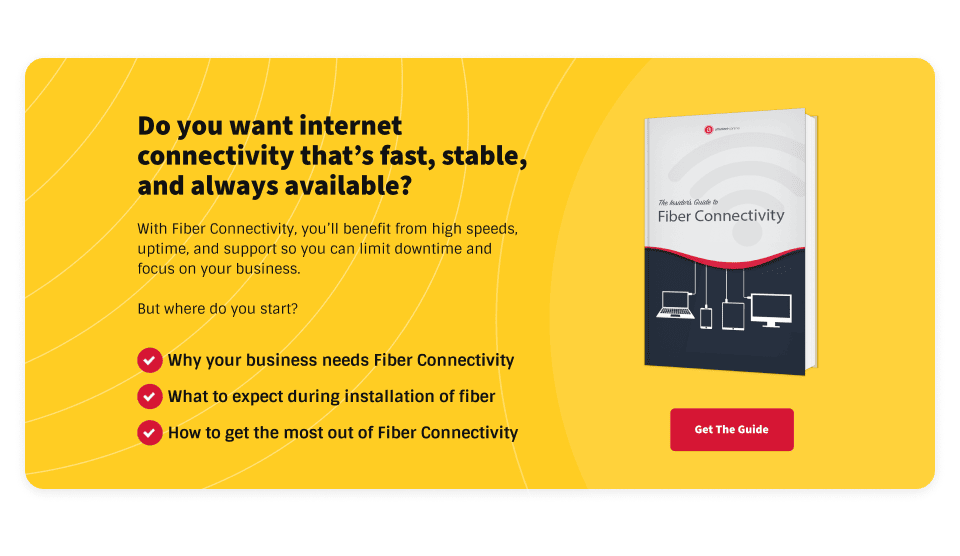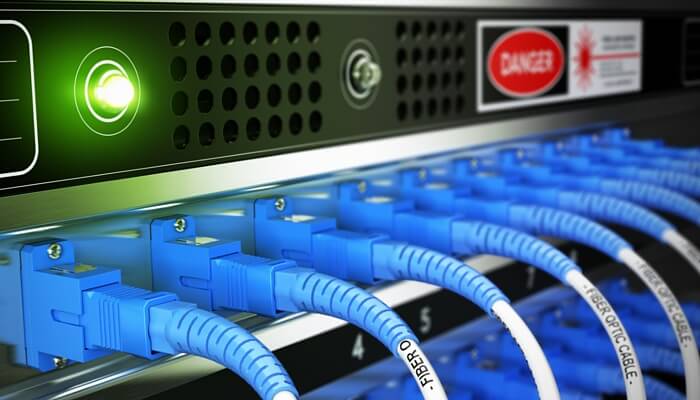Internet connectivity over fiber-optic networks has become the gold standard for fast, high-quality data transmission for businesses. The relatively new nature of this technology can leave some hesitant to invest in it for their business.
Fiber relies on light instead of electricity to transmit data, which facilitates much faster Internet connections that are capable of handling higher bandwidth. According to the FCC, fiber providers consistently offer 117% of the advertised speed, even during times of peak demand.
The most recent legislation the Biden administration passed includes lots of spending on fiber infrastructure. The money will be distributed to different states and bring down costs for small businesses, providing affordable high-speed Internet access.
So, if you haven't already, consider the benefits fiber-optic internet connectivity brings that we highlight in this article and make an informed decision.
Advantages of Fiber Optic Cable For Business
While most business decision-makers are aware of the speed benefits of fiber, other advantages are less commonly understood. Spending on a newer technology can feel risky, especially for organizations that rely heavily on their Internet connectivity for customer communications, productivity, and collaboration.
In this article, you'll learn a bit more about the various ways fiber-optic Internet compares to standard copper cable, including bandwidth potential, speed, and reliability, among other factors.
Fiber Optic Cable: 8 Advantages
- Bandwidth
- Upload/Download Speed
- Distance
- Security
- Reliability
- Cable Size
- Cost
- It’s Sturdier
1. Bandwidth
Investing in fiber-optic internet can significantly increase your bandwidth potential. Originally designed for transmitting voice calls only, copper wire infrastructure and TDM technology are limited in nature. For instance, T-1 can only carry 1.5 Mbps of throughput.
Ethernet over Copper service (EoC) is typically unavailable if the circuit is longer than 15,000 feet. For organizations considering shifting their voice communications to Voice-Over-IP (VoIP), having your bandwidth delivered over fiber can be an indispensable asset.

2. Upload/Download Speed
Is the speed increase of fiber-optic internet noticeable compared to copper? Absolutely.
Many Atlantech Online customers using fiber to connect to our network can transmit data at 1 gigabit per second. That's many times faster than the federal government's definition of broadband service, which is 25Mbps uploads and 3Mbps for downloads as of January 2015.
Tech blog NorthWest writes that downloads that take 22 minutes over most copper wire internet connections can take as little as 8 seconds on internet connectivity delivered over fiber.
3. Distance
The signal for copper internet networks degrades as the signal is carried from the central office (CO). Fiber was originally used for long-haul networks. Cell phone towers in remote locations use fiber optic cable to connect towers to the network.
Certain types of fiber connections can be transmitted for almost 25 miles. While most business build-outs won't require similarly robust types of fiber connections, your signal isn't in danger of degrading within metro fiber rings that would serve your business.
4. Security
In an era of increased attention toward cyber security, fiber-optic internet is touted as a cost-effective way of instantly increasing your internet security. Intercepting copper cable can be performed by connecting taps to a line to pick up the electronic signals.
Putting a tap on a fiber-optic internet cable to intercept data transmissions is incredibly difficult. It's also easy to quickly identify compromised cables, which visibly emit light from transmissions.
5. Reliability
Several factors can cause outages when an organization relies on copper cable-based internet.
- Temperature fluctuations
- Severe weather conditions
- Moisture
- Old or worn wires are a fire hazard
- Telephone company personnel sometimes make mistakes and fiddle with the wrong wires.
Outside of physical factors:
- Risks of interference from electronic or radio signals
- Copper wires all go back to the telephone company's central office where disconnections can happen.
Fiber is typically independent of the phone company, its equipment, and its termination points.
6. Cable Size
The speed of the internet transmitted via copper cable is directly correlated with the weight of the cable used. For a business to achieve higher speeds, more cable must be used, which requires more space in a company's telecommunications room.
Fiber cable's speed is not connected to its size, and it's far lighter than copper, meaning it takes up less space and it's easier to use.
7. Cost
Investing in fiber internet will cost more than copper in the short term though costs are drastically decreasing as this option becomes more commonplace. Ultimately, the total cost of ownership (TCO) over the lifetime of fiber cable is lower. It's more durable, cheaper to maintain, and requires less hardware.
The advantages of fiber make it a more cost-effective investment for organizations of all sizes.
8. It's Sturdier
Copper cable is a relatively delicate technology. Typically, it can sustain about 25 pounds of pressure without damage, which means it can be compromised with relative ease during routine operations in a company's telecommunications space.
In contrast, fiber can withstand about 100-200 pounds of pressure, meaning it is far less likely to be damaged during routine operations nearby.
Investing in Fiber Optic Internet
While organizational information technology needs can vary drastically, the benefits of fiber-optic internet are making it an increasingly common choice for business data transmission.
Companies who choose to invest in fiber typically find that the total cost of ownership, bandwidth potential, and speed gains are noticeable.
For more information on the benefits of fiber internet and Atlantech's solutions for businesses, click here and learn more about connecting your location.

